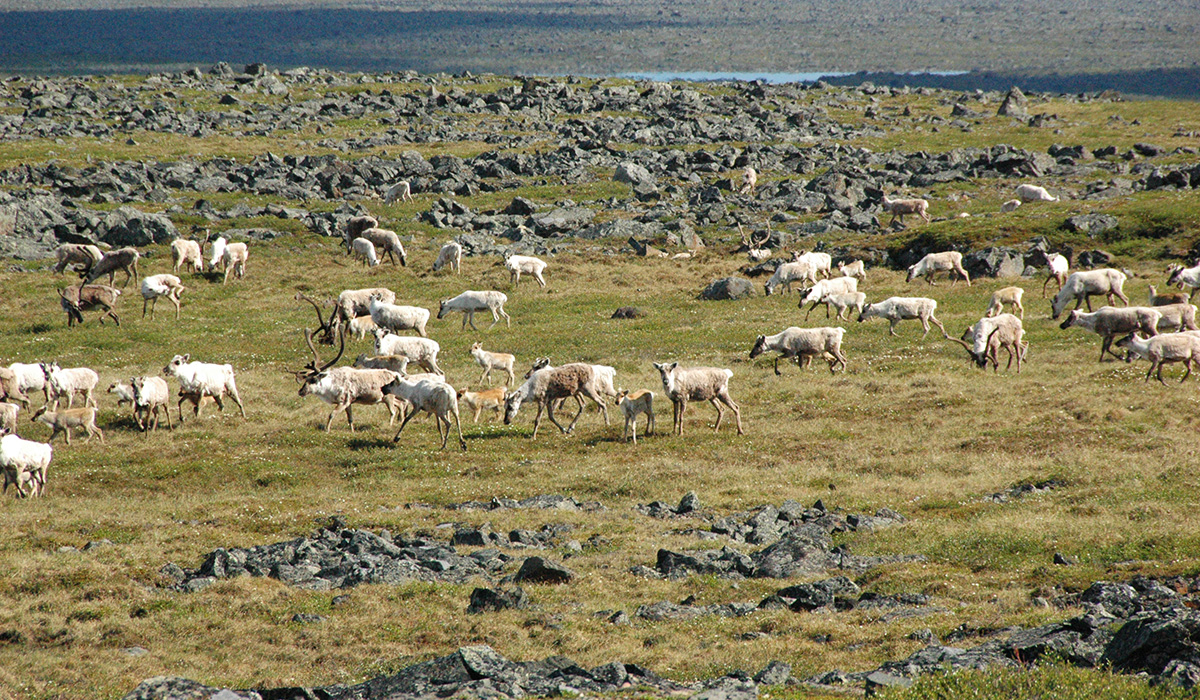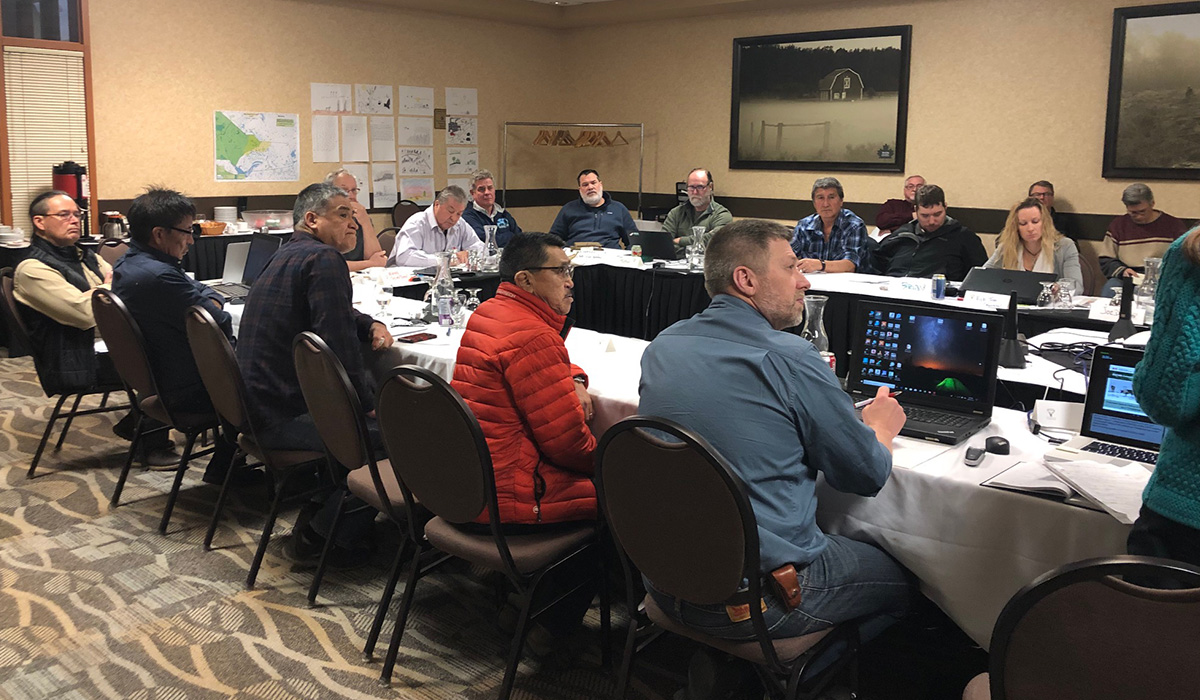History of the BQCMB
Since early times, the Cree, Dene, Inuit and Metis people of northern Manitoba, northern Saskatchewan, the Northwest Territories and Nunavut have depended on the Beverly and Qamanirjuaq caribou for food, clothing and shelter.
A Modern Approach to Herd Management
Modern times have reduced the region’s dependence on caribou—but not the significance of the animal to the culture and lifestyle of Indigenous people. In the late 1970s, population estimates caused some groups to fear the caribou herds were becoming endangered. There were also concerns that rising industrial development and the large numbers of people moving north could hurt the caribou’s environment. This called for a new approach based on co-operation among communities and governments with an interest in the Beverly and Qamanirjuaq herds.

Modern times have reduced the region’s dependence on caribou—but not the significance of the animal to the culture and lifestyle of Indigenous people.

Co-Managing the Herds
The BQCMB was the first caribou co-management board in North America. The Board provides a way to deal with the multi‐jurisdictional nature of the caribou herds and the multiple cultures of the people who depend on them while including Indigenous peoples in decision‐making processes.
Since the first Beverly and Qamanirjuaq Barren Ground Caribou Management Agreement was approved in 1982, the Board has emphasized local community input. Today, its members come together to meet twice a year, travelling from Manitoba, Saskatchewan, the Northwest Territories and Nunavut.
Of all the strides made throughout the board’s history, none is more important than the improved level of trust and respect among different Indigenous and government groups that these meetings have fostered. Before, relations were uneasy as different cultures and knowledge systems collided. But both sides have made tremendous efforts to find common ground, in order to conserve caribou for the use of future generations.
The BQCMB was the first caribou
co-management board in North America.
Now in its Fourth Mandate
The Board is now in its fourth mandate, which was formalized through the Beverly and Qamanirjuaq Barren Ground Caribou Management Agreement for 2012‐2022 among the governments of Canada, Manitoba, Northwest Territories (NWT), Nunavut and Saskatchewan. This 10-year agreement outlines the Board’s mandate, responsibilities, membership, operational rules and procedures, and the financial obligations of government parties.